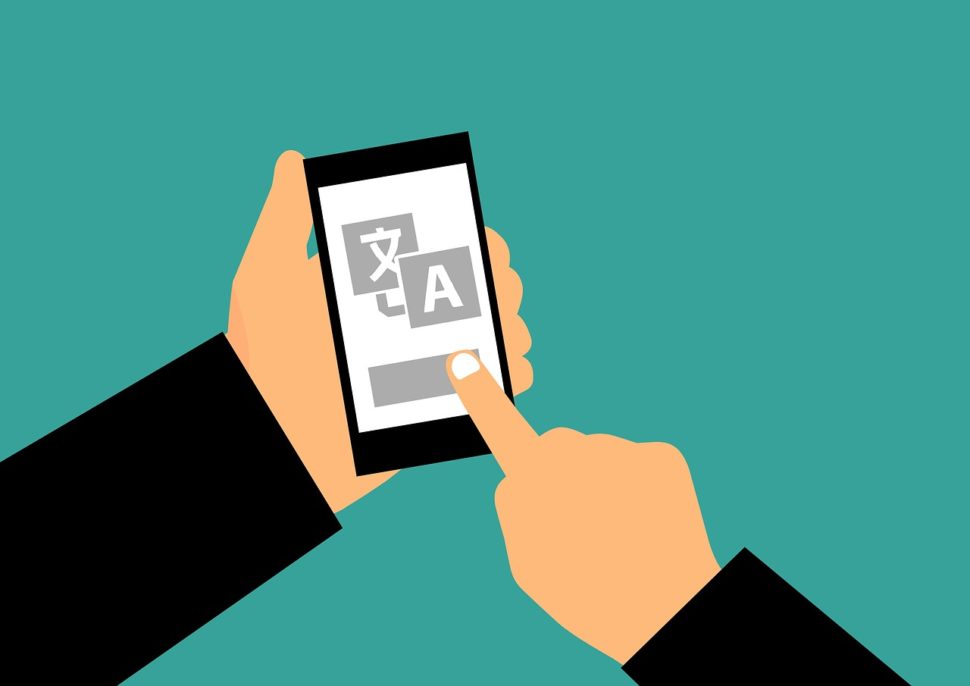An App for Comics and Inclusive Learning

The CiELL is a KA2 project, innovation in higher education. It focuses on inclusiveness in English language learning. Inclusion is defined in the UN framework as:
“a process of systemic reform embodying changes and modifications in content, teaching methods, approaches, structures and strategies in education to overcome barriers with a vision serving to provide all students of the relevant age range with an equitable and participatory learning experience and environment that best corresponds to their requirements and preferences”. (United Nations, 2016, para 11).
Based on this definition, an app is designed to offer, informal, flexible, and alternative ways of English language writing using comics as a mnemonic device. The comic, mnemonic devices or the so-called stories have the potential to assist students remember writing structures of essays, articles, and reviews with close reference to Cambridge English examinations (IELTS & PCE). Comics could be a very effective pedagogical tool to teaching children and adults any subject in any level of education (Bessette, 2020)
The stories address the 17 UN sustainable goals that set targets and indicators to make the world a better place for all, by 2030. Issues such as poverty, homelessness, well-being, and climate change are turned into graphic narratives to inform students of the UN initiatives, picture the global challenges and raise awareness of social justice. The UN goals is regarded as:
“…. the blueprint to achieve a better and more sustainable future for all. They address the global challenges we face, including those related to poverty, inequality, climate change, environmental degradation, peace and justice. The 17 Goals are all interconnected, and in order to leave no one behind, it is important that we achieve them all by 2030.’
The multimodal perspective of the app (visual, audio and kinetic options) could be helpful for students facing learning challenges due to the optional character of the learning design. The readers could enjoy listening the stories, reading them at their own pace and use their touch screen devices to drag and drop images in the task sections. Badges are integrated into the activities to provide a form of positive reinforcement at the end of each task.
How to use the CIELL app out of the classroom
The content of the app is web-based which means that it could be downloaded on any device with internet access. The CIELL app could be deployed by anyone interested in improving their reading and writing skills or learning about the UN sustainable development goals. It is user-friendly and could be used anywhere, anytime by autonomous learners as a supplementary resource or simply free reading while commuting to work. Readers will be exposed to comics, infographics and narratives that have the potential to enhance vocabulary, learn and memorization of the basic writing structure of essays, reviews and articles in the format that it is expected during exams.
How to use the CiELL app in class
It could be a tool to promote writing tasks, peer interaction and collaboration, group or class discussion but it may be used for homework activities (Flip classroom approach) as well.
Peer-learning
According to Cambridge English Language research (2015), peer learning has immense potential as a pedagogy. Learners get to consolidate what they have learned, talk more, socialize more, get low anxiety language practice, and experiment or even learn from their mistakes. The CIELL app could be effective to improve engagement and collaboration among learners with learning challenges and learners with less difficulties to build teams, enhance empathy and social consciousness by working in groups of two or three students. They could work together on the task provided by the app or write together in class using the generic writing structure infographic provided. For example, the article of Agatha Christe could be read in class and ask students -working in small groups- to think about famous personalities that succeeded in their fields , despite their learning challenges and write about them according to the infographic available in the first level of the app. Then, they could share their writings and students could review their peers work in groups. The best could be presented orally in class and function as a prompt for more dialogue about inclusiveness (UN goal 4- quality education).
The flipped classroom approach – a dialogue approach
Flipped Learning is a pedagogical approach in which direct instruction moves from the group learning space to the individual learning space, and the resulting group space is transformed into a dynamic, interactive learning environment where the educator guides students as they apply concepts and engage creatively in the subject matter (FLN,2014).
Since 2014, the flipped classroom has become a popular teaching method in English language teaching (ELT) as it has great impact on students’ motivation, language understanding and use in class (Chen Hsieh, Wu & Marek, 2017; Turan & Akdag-Cimen, 2019). The CIELL app could be used as a homework activity and in class dialogue can focus on the issues discussed in the comics thereby enhancing awareness of the UN sustainable development goals. In this way, several perspectives and opinions can be debated developing language skills as well as democratic tolerance, empathy, and critical literacy. Materials for further activities (e.g. games, mind-maps and comics) and cross media literacy are available at the UN sites: http://worldslargestlesson.globalgoals.org/make-every-school-safe-to-learn/ (poster, more comics, from where I stand).
This first version of app will be ready to download on the 11th of May 2020.The innovative and experiential approach of the pilot design needs to be further investigated to better accommodate English language learners and storytellers of the world. More information about the project and the app is available on the CiELL project website: https://ciell.eu/ and on Facebook.
References
Bessette, L.S., 2020. Teaching Comics/Teaching with Comics: A Review of With Great Power Comes Great Pedagogy: Teaching, Learning, and Comic Books. The Comics Grid: Journal of Comics Scholarship, 10(1), p.2. DOI: http://doi.org/10.16995/cg.190
Jun Scott Chen Hsieh, Wen-Chi Vivian Wu & Michael W. Marek (2017) Using the flipped classroom to enhance EFL learning, Computer Assisted Language Learning, 30:1-2, 1-21, DOI: 10.1080/09588221.2015.1111910
Zeynep Turan & Birgul Akdag-Cimen (2019) Flipped classroom in English language teaching: a systematic review, Computer Assisted Language Learning, DOI: 10.1080/09588221.2019.1584117
Web-links
https://languageresearch.cambridge.org/language-papers/1048-student-interaction/668-benefits
https://flippedlearning.org/wp-content/uploads/2016/07/FLIP_handout_FNL_Web.pdf
http://worldslargestlesson.globalgoals.org/make-every-school-safe-to-learn/
About the Authors:
 Chryssa Themelis is a researcher at Lancaster University, professor/doctoral advisor at Bolton University and an expert of technology enhanced learning (TEL). She works as a researcher/trainer for EU projects such as Erasmus + and coordinates the annual VocTEL conference aiming to promote TEL in Europe. She holds a BA in Economics from Deere College, a MSc in Networked Learning and a PhD in the field of “E-research and Technology Enhanced Learning” from Lancaster University (department of educational research).
Chryssa Themelis is a researcher at Lancaster University, professor/doctoral advisor at Bolton University and an expert of technology enhanced learning (TEL). She works as a researcher/trainer for EU projects such as Erasmus + and coordinates the annual VocTEL conference aiming to promote TEL in Europe. She holds a BA in Economics from Deere College, a MSc in Networked Learning and a PhD in the field of “E-research and Technology Enhanced Learning” from Lancaster University (department of educational research).
 Julie-Ann Sime is a pioneer of online distance learning who has been teaching online for 25 years. She also has 30-year experience of researching into the use of new technologies in training and education, including: use of video for reflection, game-based learning and virtual worlds for training professionals. She is co-editor of a new book on Networked Learning: Reflections and Challenges (2018).
Julie-Ann Sime is a pioneer of online distance learning who has been teaching online for 25 years. She also has 30-year experience of researching into the use of new technologies in training and education, including: use of video for reflection, game-based learning and virtual worlds for training professionals. She is co-editor of a new book on Networked Learning: Reflections and Challenges (2018).

Raymond Rose
April 3, 2020 at 11:40 am
I”m curious to know if the comic app is fully WCAG 2.1 AA compliant? It doesn’t sound like someone with a screen reader would be able to use it.